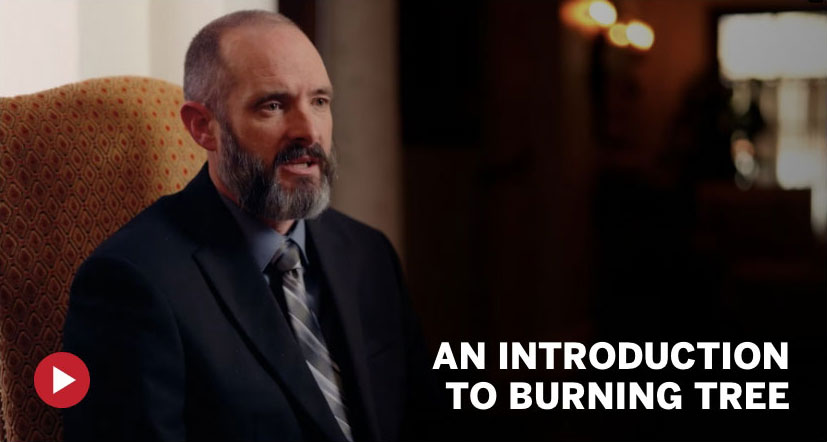When Should Medical Professionals Refer Clients to Long-Term Addiction Treatment?
Medical professionals play a crucial role in identifying and addressing substance use disorders (SUD), often being the first to recognize the signs and symptoms that warrant a referral to long-term, chronic addiction treatment. There are several critical circumstances under which they might make such a referral, as outlined below.
Who We Are
Burning Tree Ranch is a specialty program dedicated to the treatment of chronic addiction and mental health. Our program is long-term, progress-based, and highly intensive. Since 1999, we have supported countless referring professionals in delivering ethical, high-quality solutions to the clients and families they represent.
Circumstances for Referral to Long-Term Treatment
Repeated Health Issues Related to Substance Use
Encountering a patient with recurrent health problems, such as liver disease, infections, or overdose, directly related to substance use suggests the need for more comprehensive treatment than acute medical care.
Co-occurring Mental Health Disorders
Identifying mental health disorders, such as depression, anxiety, or bipolar disorder, that co-occur with substance use, indicating a complex treatment need that requires an integrated approach to address both the addiction and mental health issues.
Lack of Response to Short-term Interventions
Observing that a patient does not respond to short-term treatments or interventions or quickly relapses after such treatments pointing to the need for more intensive and sustained treatment options.
High-risk Behaviors
Recognizing behaviors that pose a significant risk to the patient's or others' safety, including impaired driving, unsafe sex, or needle sharing, which suggest an urgent need for intervention to prevent harm.
Patient's Acknowledgment of Need for Help
A patient explicitly expressing a desire to seek help for their addiction, especially after recognizing its negative impact on their life, is a clear indication for a referral to specialized treatment.
Observations Informing the Need
Medical professionals use these observations and circumstances to guide their decision-making process, understanding that long-term, chronic addiction treatment offers the best chance for patients to recover and regain control over their lives. Their referral can be pivotal, connecting patients with the resources and support they need to embark on recovery.
- Physical Signs of Chronic Substance Use: Visible physical signs, such as track marks, chronic nasal issues, jaundice, or poor general health, can indicate long-term substance use requiring comprehensive treatment.
- Behavioral and Psychological Indicators: Changes in behavior, such as increased irritability, mood swings, withdrawal from social activities, or signs of depression and anxiety, can signal underlying substance use issues.
- Social and Functional Impairment: Noticing a decline in the patient’s social functioning, including problems at work, school, or in family relationships, often suggests that substance use is impacting their life broadly.
- Withdrawal Symptoms: Observing withdrawal symptoms during consultations or hospital visits indicates physical dependence and the need for medically supervised detoxification and long-term treatment.
- Patient History and Self-report: A thorough patient history that includes previous attempts at treatment, patterns of substance use, and the impact on daily living can provide critical information for making a referral.

Navigating Client Relationships: When Estate & Probate Attorneys Encounter Addiction
The responsibility of a medical professional to recommend long-term chronic addiction treatment to a client is a critical aspect of their role in providing holistic healthcare. This duty is based on a combination of clinical expertise, ethical considerations, and a commitment to the overall well-being of their patients.
Clinical Expertise and Assessment
Medical professionals are tasked with accurately diagnosing substance use disorders (SUD) and any co-occurring conditions, utilizing their clinical expertise to identify the severity and implications of the addiction.
Based on their assessment, they must recommend appropriate treatment options that suit the individual needs of the patient, which may include long-term, chronic addiction treatment programs that offer a comprehensive approach to recovery.
Ethical Considerations
There is an ethical obligation to act in the patient’s best interest, which includes recommending treatments that offer the best chance for recovery and improved quality of life.
Medical professionals must ensure that patients are fully informed about their condition, the recommended treatment options, and the potential risks and benefits, allowing patients to make informed decisions about their care.
Holistic Care Approach
Recognizing the interconnection between physical health, mental health, and substance use, medical professionals should advocate for integrated treatment programs that address all aspects of the patient’s health.
They coordinate with other healthcare providers, including mental health specialists and addiction counselors, to ensure a cohesive and comprehensive treatment plan.
Advocacy and Support
Medical professionals often need to advocate for their patients to secure access to necessary treatment programs, which may involve liaising with insurance companies, treatment centers, and support networks.
The responsibility extends beyond the initial recommendation, involving ongoing support and monitoring of the patient’s progress through the treatment process, adjusting care plans as needed to support recovery.
Patient Education and Empowerment
A significant part of this responsibility includes educating patients and their families about the nature of addiction, the importance of long-term treatment, and strategies for managing recovery and preventing relapse.

Empowering Recovery: How Medical Professionals Motivate Patients Towards Treatment
Medical professionals, given their trusted status and expertise, can significantly influence a patient’s decision to seek and complete treatment for substance use disorder (SUD) or related mental health conditions. Their approach can blend medical insight, empathetic communication, and strategic support to motivate patients and their families toward embracing treatment. Here’s how they might achieve this:
CREATING MOTIVATION FOR TREATMENT
- Highlighting the Health Benefits: By clearly outlining how treatment can lead to improved physical and mental health, reduced risk of chronic diseases, and overall enhanced quality of life, medical professionals can create a compelling case for seeking treatment.
- Educating on the Consequences of Untreated Addiction: Discussing the potential long-term consequences of untreated addiction, including impacts on health, relationships, and financial stability, can motivate patients to consider treatment as a necessary step toward recovery.
- Personal Success Stories: Sharing anonymized success stories of other patients who have completed treatment programs can offer hope and tangible examples of the benefits of seeking help.
- Family Involvement: Encouraging family support and involvement in the treatment process can provide additional motivation, emphasizing the positive changes that recovery can bring to family dynamics and relationships.
Incorporating Leverage for Treatment
- Setting Clear Health Goals: Collaborating with the patient to set achievable health goals that can be met through treatment, making the path to recovery more tangible and the outcomes more desirable.
- Leveraging Existing Health Conditions: For patients with existing health conditions exacerbated by substance use, emphasizing how treatment can directly improve these conditions can serve as a powerful incentive.
- Conditional Recommendations: In some cases, medical professionals might condition the continuation of specific medical treatments on the patient’s agreement to seek and complete addiction treatment, especially if doing so is critical to the patient’s overall health outcome.
- Access to Resources: Facilitating access to treatment resources, including information about reputable treatment centers, assistance with insurance and payment options, and support navigating the healthcare system, can reduce barriers to starting treatment.
- Follow-up and Accountability: Regular follow-up appointments to monitor progress, discuss challenges, and adjust treatment plans as necessary can keep patients accountable and motivated to continue their treatment journey.
Medical professionals can effectively motivate patients by combining their medical expertise with a compassionate understanding of individuals’ challenges with SUD. By acting as both healthcare providers and advocates, they can guide patients and their families through decision-making, offering support and resources to embark on recovery.
Considering Long-Term Treatment for Your Client
The Need to Act
What are the circumstances under which you may refer a person to long-term, chronic addiction treatment? What are you observing that informs you of the need to act?
Fiduciary Duty
Do you have a moral or fiduciary responsibility to make a recommendation for long–term chronic addiction treatment for your client?
Motivation for Completing Treatment
What motivation for treatment might you be able to create as a trusted professional serving a family’s best interest? How might you incorporate leverage for the client to go and complete treatment?

We've Worked Closely with Healthcare Professionals to Refer Clients to Burning Tree for Long-Term Treatment
How Do I Know If My Loved One is a Fit for Burning Tree Ranch?
Authentic Long-Term Treatment
Burning Tree specializes in treatment for Chronic Relapse
We understand the complex, multi-faceted issues many of our families face when it comes to addiction. The circumstances of long-term residential treatment allow us to create a treatment program unlike anything else in the world.
Operating outside the limitations of a traditional 30, 60 or 90-day format, Burning Tree adheres to progress-based metrics that inform the clinical treatment team of the unique mental, emotional and spiritual needs of the individual.
We are the only treatment center in the United States that combines time-intensive residential treatment with a therapeutically coordinated aftercare program focused singularly on the treatment of chronic relapsers.
Featured In Top Publications













